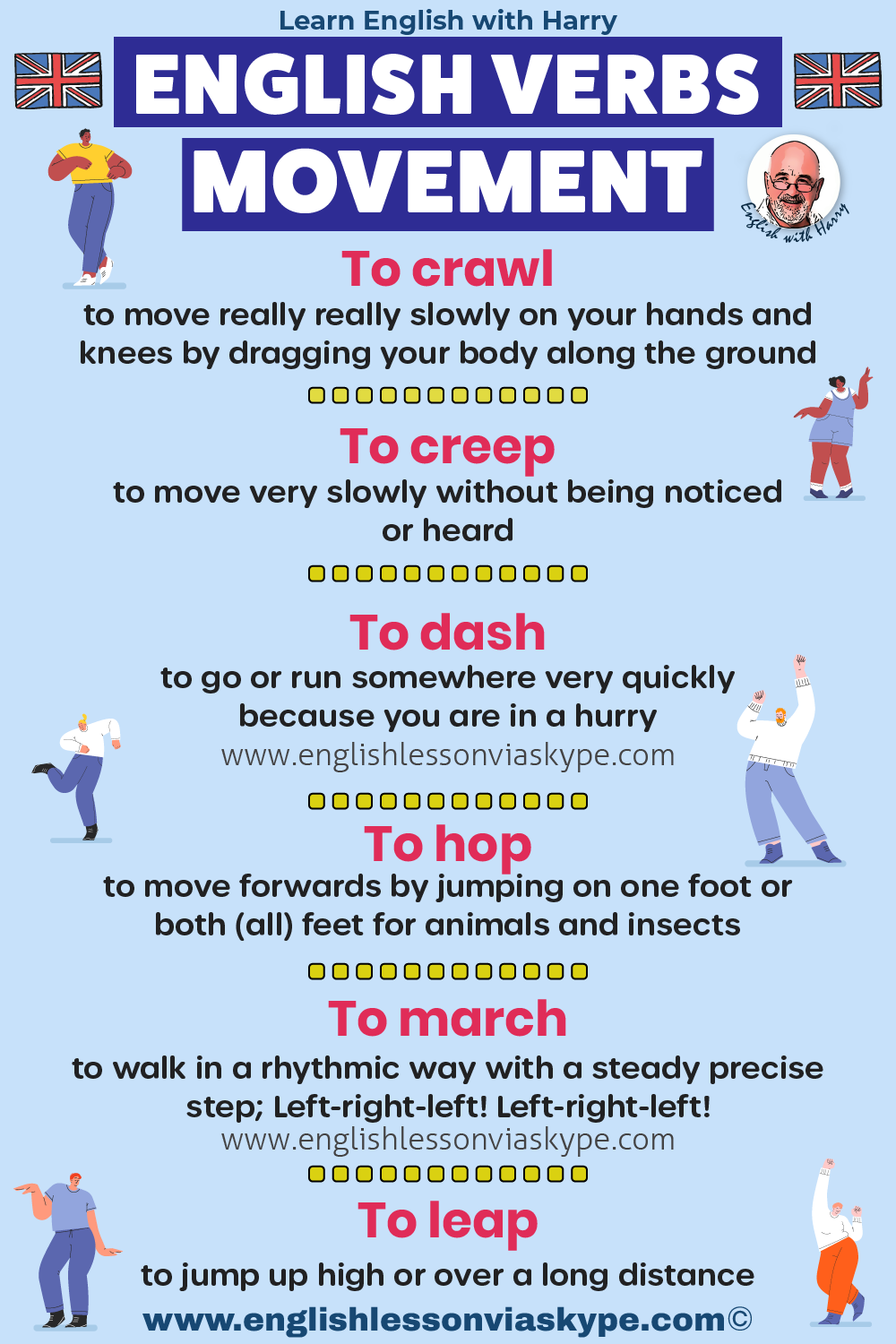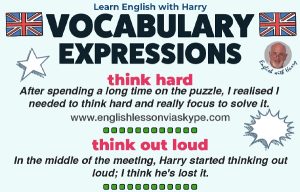Here you’ll learn ten verbs of movement in English that native speakers use.
Having a broad vocabulary will help you better understand English, and will make your English speaking more fluent. In this lesson, I’ll give you the list of movement verbs in English, detailed explanations and practical examples of how to use them.
List of movement verbs in English
Harry
verbs of movement in English
Hi there, this is Harry. Welcome back to my English lessons. I’m here to help you improve your English, whether it’s conversational English or business English.
Don’t forget to subscribe to my YouTube channel Learn English with Harry. You can also listen to my English learning podcast Speak Better English with Harry. My podcast is available on Apple Podcasts, Amazon Music, Google Podcasts and many other podcast apps.
Intermediate to Advanced English Marathon

INSANITY: doing the same thing over and over again and expecting different results.
Albert Einstein
- What you'll learn:
- better understanding of more complex grammar structures
- advanced English vocabulary words
- British & American slang
- perfect your listening skills through practing different accents
- This marathon is for you if you're:
- stuck at an intermediate English level
- tired of confusing explanations
- a mature student
- shy & introverted
to crawl
Meaning: to move really really slowly on your hands and knees by dragging your body along the ground
Examples:
At around six months old, babies start to crawl.
The traffic is terrible; I am crawling along here.
I like to go for a fast walk, but my wife is always crawling along.
to creep
Meaning: to move very slowly without being noticed or heard
Examples:
I could see the neighbour’s cat creeping up in the garden, trying to catch a bird.
He crept up the stairs, trying not to make noise. When he reached the bedroom’s door, his wife woke up and turned on the light.
verbs of movement in English

Share and help other students to improve English language skills.
to dash
Meaning: to go or run somewhere very quickly because you are in a hurry
Examples:
Oh, look at the time, I have to dash; I am in a hurry.
I dashed out of the train station, jumped into a taxi and was home in 15 minutes.
You’re holding me up here. I need to dash, I’ve got a bit of work to do before I go home.
to hop
Meaning: to move forwards by jumping on one foot or both (all) feet for animals and insects
Examples:
She broke her ankle and had to spend several weeks hopping around the house.
I forgot to bring my flip-flops and hopped on the hot sand to get into the cool water.
book your trial English Lesson
verbs of movement in English
to jog
Meaning: in between a run and a fast walk; to run at a slow steady speed, often in order to get fit
Examples:
He jogged for a little while to stretch his muscles before the run.
I like to jog to work.
I like to jog in the park in the morning.
Speak Better English with Harry - Episode 312
to leap
to leap – leapt/ed – leapt/ed
Meaning: to jump up high or over a long distance
Examples:
The cat leapt up, trying to catch a bird.
She leapt into the air when she got her exam results.
The fans leapt up immediately when they scored the third goal.
to march
Meaning: to walk in a rhythmic way with a steady precise step; Left-right-left! Left-right-left!
Example:
The headteacher marched into the classroom and demanded to know who had been smoking behind the bicycle shed.
marching band – people playing musical instruments while marching along the streets
verbs of movement in English

to skip
Meaning: to move forwards by hopping from one foot to the other
Example:
The young girl was skipping along the road.
skip = miss
Example:
Look at page 25, skip exercise 2 because we haven’t covered that yet.
to step
Meaning: to move forwards by putting one foot in front of the other; a short movement
Example:
My boss asked me to step into his office to have a private discussion.
to stride
Meaning: to move forwards with big long steps; stretch the legs and maximise the effort and the energy that you use
Example:
When the sun is shining; and the air is warm, I like to stride through the park.
More information
For more information on English grammar rules, English collocations and English idioms, check out the links below:
How to negotiate the price in English
Vocabulary expressions related to housework
You can always study English advanced level at Learning English with the BBC.
You will love these English lessons

Natural English Collocations with Think
Learn natural English collocations. Are you eager to sound more like a native speaker and less like a textbook? Today,


Asking for a Refund in English
Asking for a refund in English couldn’t be easier with these phrases! Here you will also learn useful words and


5 English Verbs To Describe Reading
Here you will learn 5 English verbs that you can use instead of READ and 6 book English idioms. Not